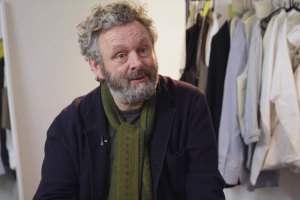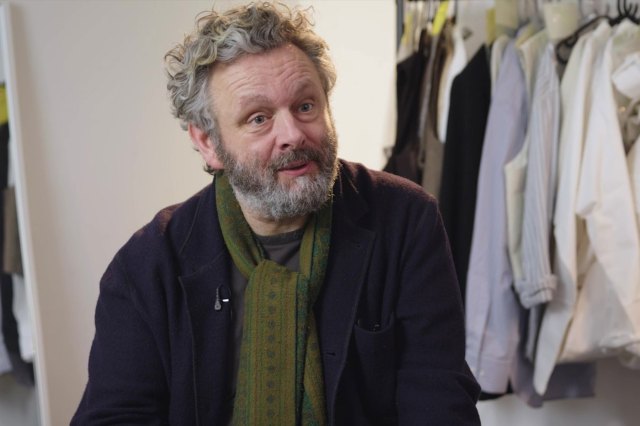20 Questions With…Ray Cooney
Actor, writer and director Ray Cooney currently has two comedies in the West End – one he’s written, the other he’s directing. The latter, Over the Moon, opens this week with Joan Collins in the lead.
Ray Cooney’s theatrical career began in 1946 when, as a boy, he appeared in Song of Norway at the Palace Theatre. He further served his apprenticeship by performing in various repertory companies around the country before moving on to Brian Rix’s troupe at the Whitehall Theatre in 1956.
Later he began a writing career which resulted in numerous West End plays such as Chase Me Comrade, Wife Begins at Forty, Run for Your Wife!, Out of Order and Funny Money. As a producer and director he has overseen several major London productions including Lloyd George Knew My Father, Whose Life is it Anyway?, Bodies and Children of a Lesser God.
In 1983, Cooney formed the Theatre of Comedy Company (bringing together a number of West End stars) and became its first artistic director. The team went on to produce over 20 plays including Out of Order, Passion Play and acclaimed revivals of See How they Run, Loot and Pygmalion starring Peter O’Toole and John Thaw.
Cooney is currently represented in the West End with two new shows. He’s directing Ken Ludwig’s comedy Over The Moon, which opens this week with Joan Collins at the Old Vic. And his own comedy, Caught In the Net, sequel to the still touring Run for Your Wife , is playing at the Vaudeville Theatre, with Russ Abbot and Eric Sykes.
Date & place of birth
Born in London on 30 May 1932.
Now lives in
Where I’ve lived for the past 38 years, in the same house near Epping Forest.
Trained at
Nothing formal at all. I left school when I was 14, having persuaded my parents to let me, and spent four years as a boy actor. Then, after doing national service, I went into weekly repertory theatre. I still wonder how things might have turned out differently if I’d completed a longer period of schooling.
First big break
The turning point came when I joined Brian Rix’s company at the Whitehall Theatre. They were based there for a long time even though they only actually produced a small number of productions. I learnt a lot about the importance of teamwork from that time.
Career highlights
I know it sounds a bit odd to say it, but they’ve genuinely all been such fun to do that I can’t choose between them.
Favourite actor/actress
I particularly admire the branch of professionals who can play roles right across the spectrum. I’m talking about the likes of Donald Sinden, Richard Briers and Geoffrey Palmer who can do my kind of works and still play the classics too. I also think that Steven Berkoff is a fantastic actor.
Favourite director
Again, I admire those artists who are able to vary their output considerably. To that end, I have a lot of time for Trevor Nunn, whose directing has taken in everything from classics to musicals.
Favourite playwright
In the period when I went from doing weekly repertory to joining Brian Rix, I must have done about 200 plays. So it makes picking out favourites from that large amount quite hard. What I most look for in a piece of work is the range of emotions it offers. I like playwrights who can make you laugh and cry in the same piece. Whose Life Is It Anyway? is a very serious story on the one hand, but can also provide you with that lump in the throat feeling whilst offering comic touches. Neil Simon and Alan Ayckbourn are two authors who can achieve that satisfying level of variation.
What play (by someone else) would you most like to have written?
I refer back to the aforementioned Whose Life Is It Anyway?, by Brian Clark, which Tom Conti won the Best Actor Tony Award for in 1989. I also love Shakespeare’s ability as a poet and conjuror of big extravaganzas. A Midsummer Night’s Dream, performed outdoors, and Hamlet are two particular favourites.
As a playwright, director, actor and producer, you’re a real theatrical renaissance man. How do you balance these different roles?
I see them all as one whole entity really. I regard myself basically as an actor who has hit upon a style of play which I personally can write. However, I do try and create things from an actor’s perspective and imagine how they will relate to the audience. In that sense, I’m constantly putting myself in the actor’s position, but taking that through also to the directing side – thinking about what the play demands and how best to serve it. When you’re directing, though, your energy is sapped by all the attention that actors individually, and collectively, are demanding from you all the time. With the writing side, you can just lock yourself away and emerge for a break when you feel like it, without any draining demands being placed on you.
In your opinion, what’s the best thing currently on stage?
I saw Mamma Mia!, and found it to be wonderfully performed and a real audience pleaser.
What advice would you give to the government to secure the future of British theatre?
It’s my view, and one that not everyone will agree with, that the government should fundamentally support the fabric of our theatre buildings. If the venues were maintained with no rent overheads, it would then fall to the respective artistic directors to get on with the job of filling the places. There’s a fair bit of waste and self-indulgence within the industry, and I don’t think the public are always offered what they actually want.
If you could swap places with one person (living or dead) who would it be?
I wouldn’t want to change places with anyone, but I would like historically to have been around the theatre in the early 1900s. At that time it really was the be-all and end-all of entertainment – before radio, movies and television. Theatre then was of the highest importance, although it’s still a good business to be in even now.
Favourite book
I’ve always enjoyed biographies and autobiographies, but not just ones about theatre personalities. As a child, I thought the William books (by Richmal Crompton) were great, and have passed them on to my own children and grandchildren. I always found them to be very well constructed with truly memorable characters. Nicholas Nickleby by Charles Dickens is also another book that comes to mind as enduring.
Favourite joke
There is one I heard a while ago that I liked enough to put into Caught In the Net. A man goes to see his local vet. The vet says ‘Open your mouth and say Aaahhh!’ The man asks him why. ‘Because your dog has just died,’ replies the vet.
Favourite holiday destination
To be honest, it’s anywhere I can go and direct, or perform, in one of my own plays. I especially like going to the Miami Coconut Grove Playhouse. You wake up in the sunny morning with your day free to play tennis or go swimming, knowing that in the evening you’ve got the lovely experience of sharing a play with 800 people. My sons live in Adelaide and Los Angeles so I love any excuse to go and see them. We also performed Run For Your Wife on board a cruise ship which sailed between San Francisco and Australia. I think we only did about eight performances, but the ship’s theatre had great seats and staging.
What special challenges do you think there are for writing & directing comedy?
I’m not sure there’s really such a big difference. For both to succeed, you need a strong drama as a starting point. That is the essence, and not just the funny situations that might occur within it. People often send me comic things that have happened to them, commenting that it might make the basis of a play, but any story needs decent dramatic situations as a base. Once you’re at that point, you can then choose to take it all down a comedic or more serious line.
To what do you attribute the success of Run for Your Wife? Why did you want to write a sequel?
The success was based on the fact that we had hit upon a funny story and the audience understood why one man was panicking for two hours. Also, the action within it was continuous, in the sense that there wasn’t a three-month time gap placed between the acts. I actually resisted notions of a sequel for a long time, even though the idea for Caught In the Net was always there. I knew it could stand on its own, whether you’d seen Run For Your Wife or not, so I allowed it to happen eventually. We first tried it out about a year ago in Windsor. I always perform in my own plays at the ‘tryout’ stage and can then end up being pretty ruthless with my own work. I was astounded at how well it went, and how much the audience wanted the main character to win through.
Why did you want to direct Over The Moon & bring it to the UK?
Joan Collins first got in touch with me concerning it around three years ago. We vaguely knew each other at that point, but she said she had read this marvellous work and offered the directing job to me. So I read it, and loved the clever mix of the charming and the hysterical in it, and the way it involved comedy and farce whilst playing on the emotions. However, the project was put on the backburner when the original producer sadly died. So when Joan rang me again about it later on, I offered the possibility to Bill Kenwright. He said, “Well, if you’ve already got Joan Collins on board then we’d be happy to do it.” Another major plus came when we secured the actor Frank Langella, who was wonderful to get on board as part of our lovely team.
What’s your favourite line from Over The Moon?
If I told you it out of context, there would seem to be no humour value or anything remarkable about it at all. However, at one point in the play a character says ‘General Patton’ and it gets one of the biggest laughs of the night. But you’d have to see it all unfolding to understand the significance. It’s not, however, a play that’s written with, say, Neil Simon’s deliberate sense of comically timed gags.
What was the funniest, or oddest, moment during rehearsals for Over The Moon?
Every day we’ve had a lot of laughter, but again out of context and in the cold light of day, they might not seem unusual events. Certain sections of the play that we’ve rehearsed in all seriousness have got great laughs from the audience, and seeing that sense of relief fall over the actors gives you a terrific feeling.
Is there anything else you would like to add?
Just that every morning I think how fortunate I am to have spent 50 years totally loving what I do. I have a great living and a wonderful family, and have also seen my works performed worldwide and undergo translations. People say I’m a workaholic, but to me it really isn’t work. I’m just a very fortunate guy.
– Ray Cooney was speaking to Gareth Thompson
Caught In the Net opened at the Vaudeville on 29 August 2001 and is currently booking to 8 December 2001. Over The Moon, directed by Ray Cooney and starring Joan Collins and Frank Langella, opens at The Old Vic on 15 October 2001.
WIN TICKETS!!! – We’ve got ten pairs of Over The Moon tickets to give away. To enter our competition, click here. Competition ends 25 October 2001.












